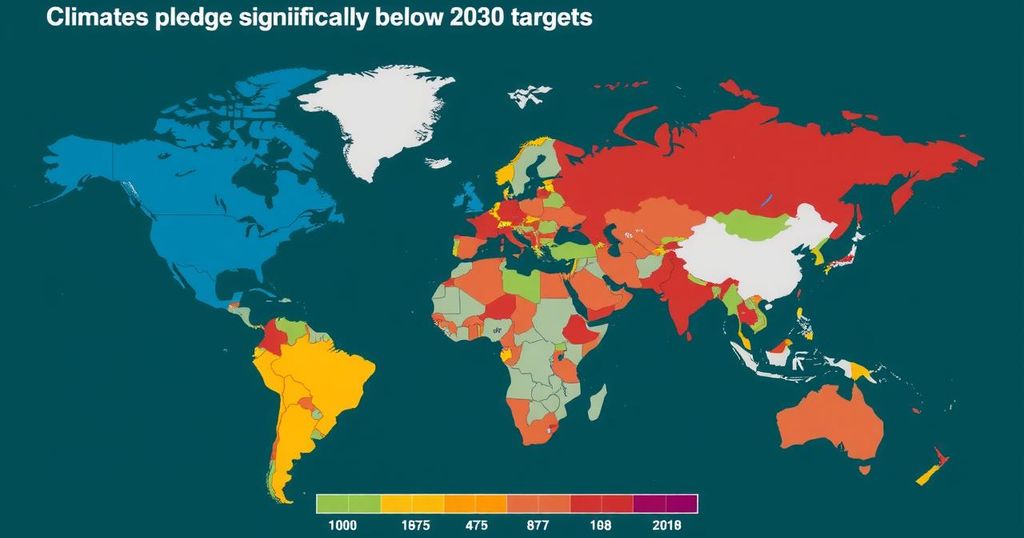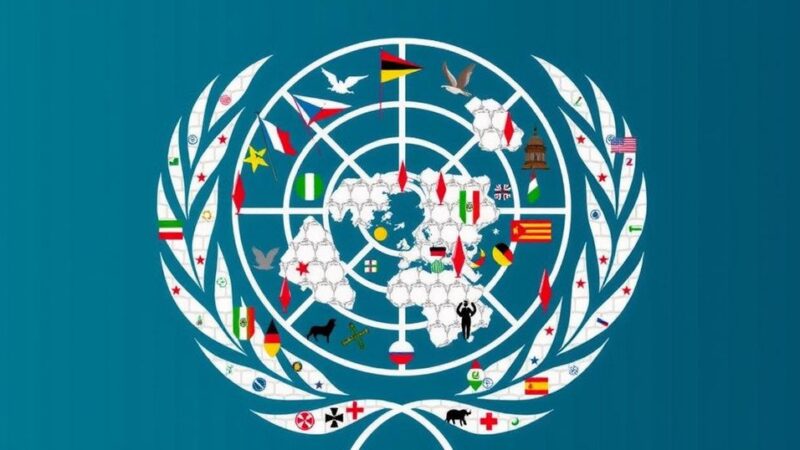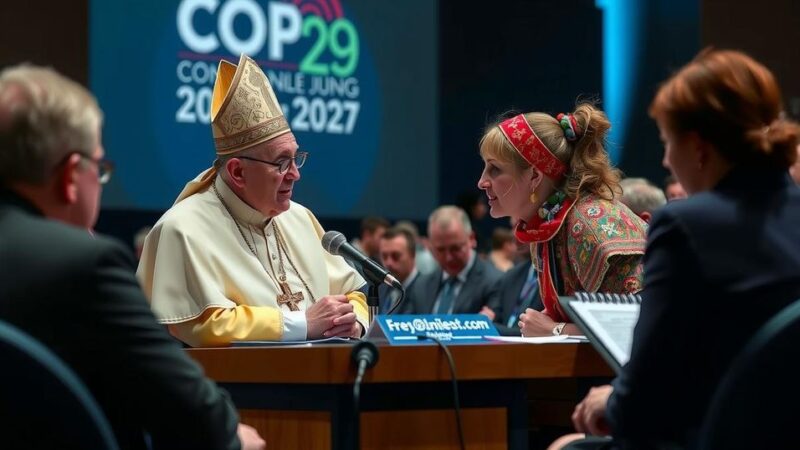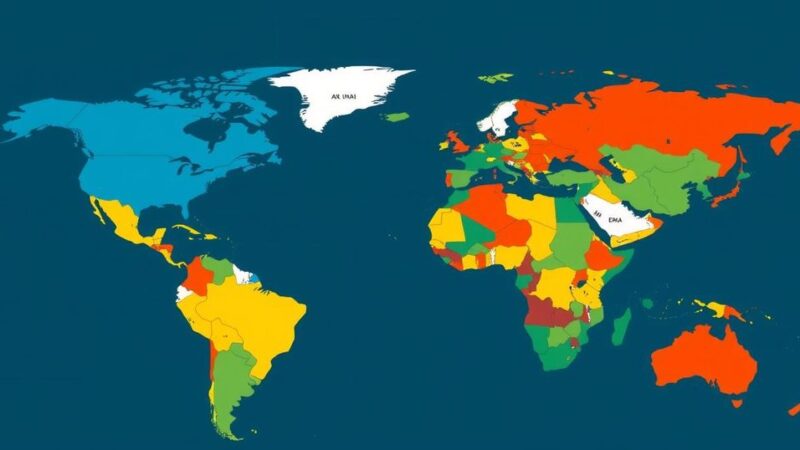The latest report from the UNFCCC indicates that national climate pledges are only anticipated to achieve a 2.6 percent reduction in greenhouse gas emissions by 2030, far below the needed 43 percent to meet Paris Agreement targets. With COP29 approaching, nations are urged to strengthen their commitments to combat climate change effectively.
Recent assessments by the UN Framework Convention on Climate Change (UNFCCC) reveal that the current climate pledges made by nations to reduce greenhouse gas emissions are severely inadequate, projecting only a 2.6 percent reduction by 2030. This increase from the previous year’s 2 percent highlights a concerning trend as scientists indicate that a 43 percent reduction is essential to maintain the Paris Agreement’s goal of limiting global warming to 1.5 degrees Celsius. Simon Stiell, the UNFCCC executive secretary, emphasizes the urgent need for nations to present new and enhanced nationally determined contributions (NDCs) by February of next year, stating that existing plans are far from sufficient to combat the devastating impacts of climate change. As nearly 200 countries prepare for the COP29 climate negotiations in Baku, the discussions will focus on forging a global emissions trading system and establishing a significant financial framework to aid developing nations in achieving their environmental objectives. Meanwhile, a separate report by the World Meteorological Organization (WMO) details alarming increases in atmospheric greenhouse gases, indicating an unprecedented pace of accumulation, prompting calls for immediate and bold action to avert catastrophic climate outcomes.
The background of the current climate crisis is rooted in the commitments made by nearly 200 nations under the Paris Agreement aimed at limiting global temperature increases. Despite these commitments, evaluations by the UN have revealed that current national pledges (NDCs) are insufficient and are not on track to meet the ambitious targets necessary to mitigate the effects of climate change. Reports indicate significant increases in greenhouse gas concentrations, especially carbon dioxide and methane, in the atmosphere, posing serious threats to global ecosystems and economies if left unaddressed. The situation necessitates urgent reevaluation of national and global strategies to ensure compliance with environmental targets and to mobilize necessary financial resources.
To summarize, the current climate pledges by nations are alarmingly insufficient, forecasting only a minor reduction in emissions by 2030, necessitating urgent and more ambitious commitments at the upcoming COP29 climate talks. The accumulating evidence from various reports underscores the critical state of our planet and the immediate need for nations to bridge the vast gap between pledges and actual required actions. Without significant and coordinated efforts to enhance NDCs, the global community risks exacerbating climate change impacts that could irreversibly harm ecosystems and human societies alike.
Original Source: www.aljazeera.com






